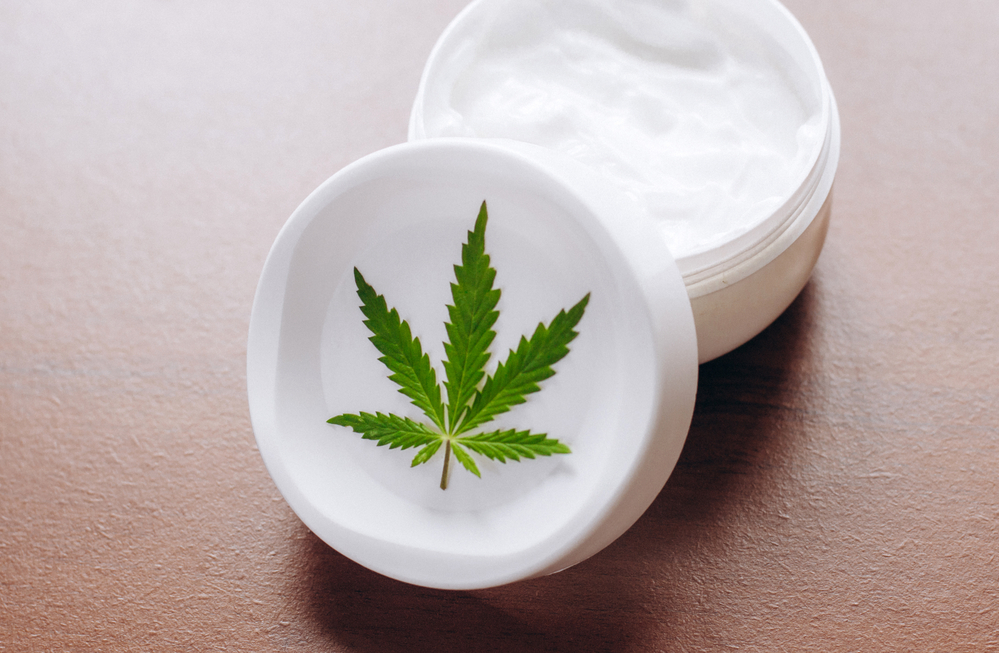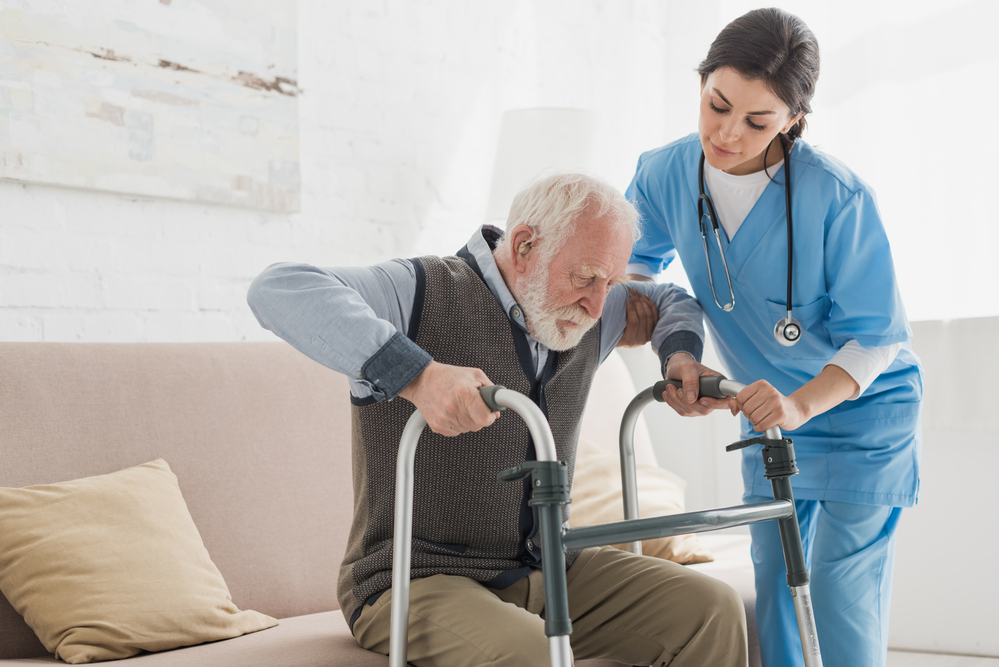
In states where medical marijuana is now legalized for qualifying patients, a new world of therapeutic options and wellness products are available. However, for seniors living in long-term care facilities or nursing homes, the contradiction between federal prohibition and state legalization is an ongoing obstacle for seniors.
Patients in thirty-four (34) states are realizing relief for chronic pain, inflammation, insomnia, nausea, and treatment of appetite loss and wasting (cachexia) with medical cannabis. Chronic health conditions become more prevalent with age. Are some of the patients who could benefit most from therapeutic and doctor-supervised cannabis being denied access to “essential services” that could improve their quality of life?
Nursing home administrators and the department of health agencies responsible for regulating long-term care facilities have a decision to make. If the patient requests medical cannabis, and if the physician feels, it may provide relief or wellness benefits, it is constitutional to block seniors?
Every nursing home has prohibited smoking for the health and safety of its residents and staff. When you start to think about expanding wellness programs for seniors in nursing homes, consider the necessary safety considerations for residents.
First, it would be impractical to allow seniors to smoke. There may be nursing homes that have established a ‘smoking area’ outdoors, on a wheelchair-accessible patio for residents. In that kind of environment, it may be possible for seniors in assisted care to have a pipe or use pre-rolled products. But given the fact that vaporized cannabis can be a lung irritant, that option may not be safe for elderly patients with respiratory problems.
What other, more practical delivery methods could be a safe way to assist seniors in long-term care with medical cannabis?

Tinctures are a liquid form of CBD or a ratio blend of CBD + THC administered in droplet form. The conventional way to dose medical cannabis involves a dropper, which can accurately measure the amount of tincture the patient receives.
Tinctures are often used by placing 2-4 drops of cannabis oil under the tongue. The blood vessels under the tongue are close to the surface, allowing them to absorb the cannabis oil rapidly. Patients who use tinctures begin to feel the effects within thirty minutes on average. At that time, they may choose to take another 1-2 drops if they think they need more for symptom relief.
Tinctures can come in pleasant flavors or unflavored depending on patient preference. But sublingual uptake is not the only way that seniors can use medical cannabis tinctures. The psychoactive (or non-psychoactive CBD 0.3% variety) cannabinoid droplets can be added to a beverage. Like a cup of coffee, tea, or juice.
For seniors who can eat solids safely, an edible variety of medical marijuana (where legalized) may be a good approach. And a delicious one. There are many different types of edible THC cannabis products to choose from.
Seniors may prefer a lozenge, which can they enjoy for up to 10 minutes as flavored candy, with pleasant and relaxing psychoactive effects. Edibles tend to produce a different experience and can be less cerebral or intoxicating. Instead, some edibles (depending on the strain) can have an enjoyable body high.
For a senior in long-term care who has suffered from chronic pain, the potential to relieve pain (even for a 3-5-hour duration after consuming THC) is beneficial. In some states, edibles are available in delicious breakfast bar varieties. Also, treats like gummies, and chocolates, or baked goods. Some dispensaries also sell lollypops, which are a fun and easy way to consume medical cannabis edibles.

Dispensaries provide creams and lotions that are either CBD based or CBD + THC infused to help address inflammation of muscles and joint pain. The topical creams can be applied directly to the area and are absorbed to help soothe the pain. Many patients find relief of arthritis inflammation by using CBD or ratio CBD and THC infused creams.
People with diabetes with neuropathy may also benefit from the use of THC infused lotions and creams. Diabetic neuropathic pain is caused by damaged nerves and receptors that become overactive. Medical cannabis lotions can provide relief of inflammation and pain when applied.
Dental pain is another hurdle that many seniors cope with. Traditionally dental inflammation is treated with antibiotics to prevent infections, and NSAIDs or opioid medications, depending on the severity of the inflammation and pain symptoms.
What if nursing homes could provide a CBD oral rinse once or twice daily to residents instead? If effective, it could prove less invasive methods of managing oral pain symptoms. Without the risk of contraindication, like CBD (with 0.30% THC) is non-intoxicating. Cannabinoids rarely counteract with other types of medications. It could be a safer approach to dispense oral rinses instead of prescription drugs for pain relief.
There are also new clinical studies that have suggested CBD oral rinses can protect teeth from further decay. While oral rinses can reduce pain and inflammation, select cannabinoids can also act as an antibacterial agent. Regular use of the rinses could stop tooth decay and develop oral infections that can (for immune-compromised residents) be high risk to address medically.
The potential of adding medical cannabis to daily therapeutics for seniors with chronic health conditions are limitless. And given that there are no recorded instances of overdose (ever in the history) relating to cannabis use, it could be a safer way for seniors in long-term care to achieve symptom relief. Any kind of surgery for seniors with chronic health conditions presents a risk. The oral rinse could be a valuable wellness protocol that helps prevent dental problems and discomfort.
What would a nursing home environment that authorized medical cannabis to look like? It doesn’t look like many seniors gathered around an insanely large hookah and smiling large. After New York legalized medical cannabis, the Hebrew Home of Riverdale implemented 420 friendly policies for long-term residents.
The care model was so unique, and it was featured in an article by Abbie Rosner for Forbes Magazine. Rosner commends the long-term care facility for being a trailblazer. The 735-bed facility is located just outside of New York City. And it has innovated a medical marijuana program for senior residents that allows patients to access medical cannabis. While also ensuring that the LTC facility remains federally compliant.
A tricky balancing act, and we can only imagine how many legal consultations took place to make sure that the Hebrew Home of Riverdale protected itself from liability. And federal funding cuts. In the past year, the federal government has reminded colleges and universities that it will not provide funding for 420-friendly (medical marijuana) campuses. It is safe to assume the same punitive legal measures for federal funding could also happen.

The CEO of the LTC facility is Dan Reingold. In his interview with Forbes, he shared that the moment medical cannabis was legalized in NY, he put the wheels in motion. Reingold had a personal experience with his father, who had terminal cancer. The CEO was able to witness firsthand the impact that cannabinoid therapeutics could have on a senior. And the value of protecting medical marijuana as a measure of compassionate care.
The argument about whether long-term care facilities should make medical marijuana accessible to residents is constitutional. If seniors in nursing homes have qualifying health conditions and are cleared for safe use by a physician, is it ethical to deny them the same privileges? Simply because they reside in a healthcare facility?
The argument against medical cannabis use in LTC’s is somewhat moot. First, residents in nursing homes are under the constant supervision of healthcare professionals. That takes doctor supervision to a higher level for safety.
Another point of consideration is that patients in long-term care facilities have chronic pain. It is reasonable to project that many nursing home residents have also developed a resistance to conventional prescription pain medications. This would make them ideal candidates for alternative cannabis therapeutics for pain relief.
Read more about the regulatory balancing act and how medical cannabis is made accessible to residents of the Hebrew Home of Riverdale on Forbes.
When you visit the website of the Society for Post-Acute and Long-Term Care Medicine™, the first statement you will read is a disclaimer. It reminds clinicians and LTC facility executives that cannabis to date remains a Schedule 1 Drug. It is prohibited at the federal level.
Then, the nursing homes’ governing body gets into real facts about medical marijuana and seniors in long-term care. The AMDA states that it supports ‘patient-centered decision making.’ What that means is evaluating what is best for the patient, on a case by case basis. And what might be best for a patient with severe and debilitating chronic pain, muscular tremors, and other symptoms that can be moderated by cannabis? Medical marijuana.

The AMDA provides a guideline for long-term care administrators in states that have legalized medical cannabis. It includes the development of policies and procedures that address the following:
For patients who are incapacitated and unable to make a personal choice to use medical cannabis, consent is required from the patient’s legal guardian. If the patient cannot participate in discussions about medical cannabis, the family can approach the LTC administrators to discuss compassionate care options.
Healthcare professionals provide all dispensing of prescription medications in long-term care facilities. Patients are provided drugs that are reviewed consistently by primary care providers within the LTC or nursing home.
There is a bit of a gray area when it comes to purchasing medical cannabis for patients. According to federal law, a healthcare organization cannot buy controlled substances that are not approved prescription medications. Medical marijuana is not federally sanctioned. Ordering medical marijuana supplies for patients (even after guardian or caregiver consent is provided) could be risky for healthcare organizations.
We did a little research to determine how some long-term care institutions handle the compliance problem. What is standard protocol for the few nursing homes that will dispense medical cannabis is written consent (and a whole bunch of waivers) from the patients’ legal guardians? Next, the guardian registers with the state as a caregiver to become authorized to purchase medical cannabis for their family member.
A physician for the senior would be consulted on the appropriate type of medical cannabis (edibles, tinctures, topicals, etc.). And also guide limits to the potency of medical cannabis products for patient safety. The caregiver would then visit a dispensary (with the recommendations), purchase the medical cannabis products, and deliver them to the nursing home for scheduled daily or as-needed dispensing.
Medical cannabis products would be labeled with the patient’s name and secured the same way that prescription medications are stored. Dosing of medical cannabis would be added to the patient’s chart, and family members would be advised to purchase as needed.
Every one of the thirty-four states that have legalized medical cannabis has compassionate care legislation that protects access to alternative health options. If a senior has a terminal illness or is unable to care for themselves, they still have an equal right to seek relief for their symptoms. And improve the quality of life.
Researchers are evaluating whether cannabis can offer other advantages for wellness. The Novel Covid-19 coronavirus has the potential to increase fatality rates in nursing homes for immune-compromised patients. There is some clinical speculation that cannabis may help reduce lung inflammation associated with Covid-19 and moderate the severity of the pneumonia symptoms.
Medical cannabis advocates want to see marijuana removed or rescheduled on the prohibited substance list to make it easier to provide it as a new therapeutic option for terminally ill patients in long-term care. It is a constitutional right for patients to seek means that do not harm them and do not harm others in pursuing therapeutics that bring them comfort.
No Information on MarijuanaDoctors.Com should be used to diagnose, treat, prevent or cure any disease or condition. You can view our Full Disclaimer here.